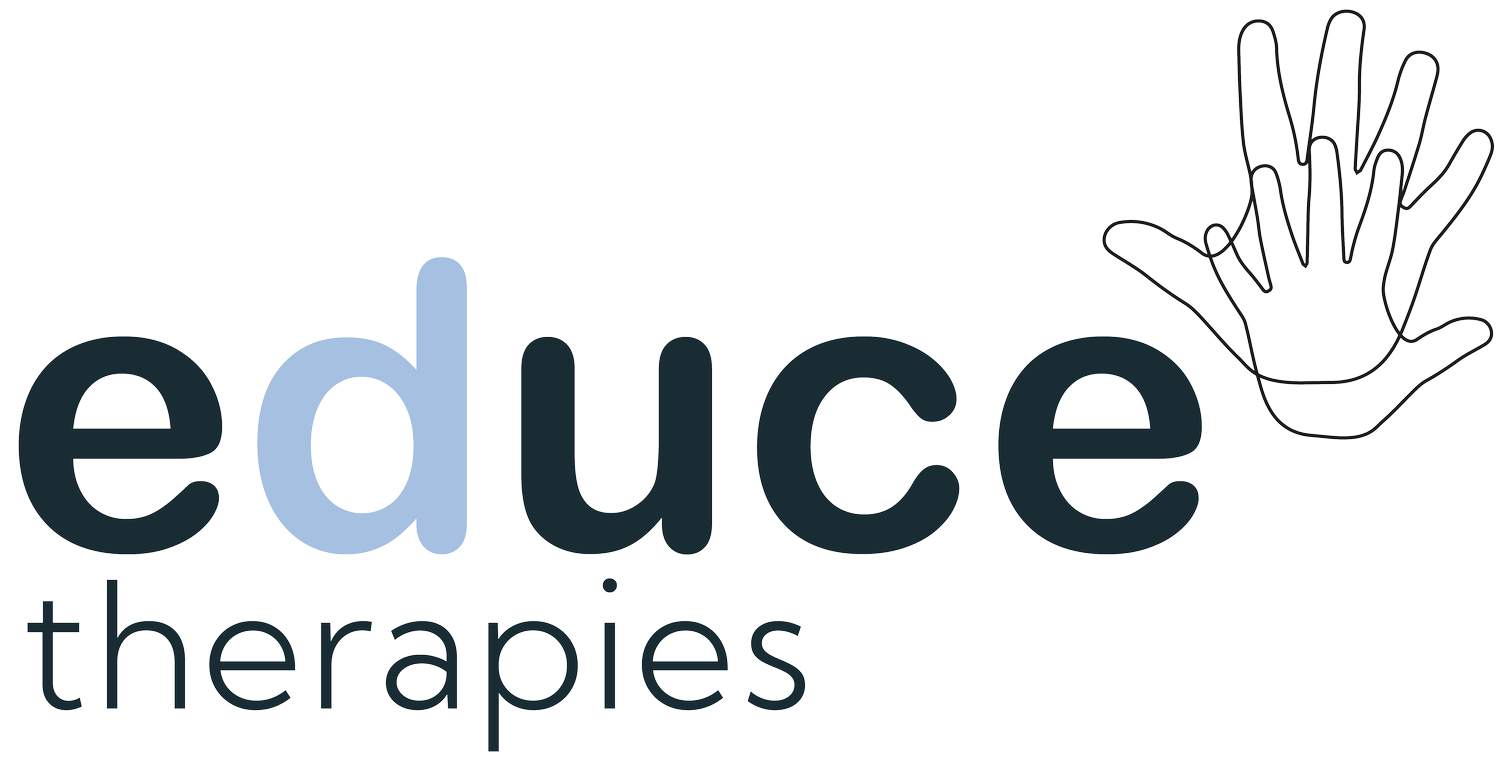What is Occupational Therapy?
Occupational therapy (OT) supports children and young people to participate in the everyday activities, or “occupations”, that are important to them. These can include things like playing, learning, building friendships, managing emotions, dressing, eating, handwriting, or moving confidently through the school day.
Difficulties in any of these areas can affect a child’s wellbeing, independence, and sense of self. As an occupational therapist, I work to understand the whole child - including their motivations/value systems, physical, sensory, emotional, cognitive needs - and look at how the environment around them can better support their development.
Rather than focusing only on what a child can or can’t do, OT is about understanding the why - and then working together to reduce barriers, build strengths, and find practical strategies that help them thrive at home, at school, and in daily life.
Sensory Processing
We are all sensory beings and each of us has a unique sensory profile. In addition to the known five sensory systems of touch, taste, sight, hearing, smell, OTs talk about three additional systems; the proprioceptive system (body in space), vestibular (balance/movement) and interception (internal body signals. OTs look at the interplay between these eight systems and daily activities, where our differences support us or where they may cause some difficulties.
Sensory processing and management of sensory needs is closely linked to emotional regulation in children.
Process Skills
Process skills, or the daily thinking skills that we use and rely on to help us plan, organise, and execute daily tasks. Process skills range from sequencing, attention/focus, planning, organising etc but are not limited to these. Our executive skills, such as frustration tolerance, delayed gratification, perseverance, time management, problem solving all fall under this area. These areas are also linked to emotional regulation skills.
Motor Skills
Motor skills, or the way we move and use our bodies, are integral to us accessing daily activities. Many motor skills are age related development milestones such as clapping, jumping with two feet, using two hands together. As an OT I would look at fine motor (table top or small-hand occupations) and gross motor skills, as well as motor planning and how this presents on a daily basis.
Life Skills
Occupational Therapy provides a unique window into the world where a person’s motor, cognitive, sensory processing, and motivation come together to support the undertaking of age appropriate activities. Life skills include all personal and domestic activities of daily living and go beyond the home and into the community.
We start to develop our life skills with basics such as toileting and dressing. But as the age of the child increases, the opportunity to develop more and more age appropriate life skills are presented daily. Life skills are a blend of all of the areas above, as well as the the child’s own internal emotion regulation systems.
From professional supervision and EHC assessments to parental support and 1:1 sessions at home or school, I offer a range of support for children, young people, families and professionals.

